
Sunday, November 29, 2009
The Various Perils of Power

No Children's Tales Here

Thursday, November 26, 2009
Happy Thanksgiving!
When thinking about it, the holiday is quite ritualized no?
A series of thanks given based on some old events.
A feast of a specific animal and veggies.
A post holiday series of shopping events.
In a fantasy campaign setting, things like that can be pretty standard.
Things that also should be looked at, are magical events. Every year, something happens at a specific time with specific results.
More unique opportunities though, are when you can have a creation of a holiday while the players are playing. Perhaps the death of a dragon? Perhaps the destruction of an orc horde? Every year after that, orc paper mache entities are crafted, destroyed, and set alfame to rerpesent the destruction of the orc horde.
Every year the city imports spieces and herbs to flavor meat and give it a certain taste, almost a dragonic taste...
There are enough ideas in a fantasy setting that it should be fairly easy to make something not only a holiday, but to make the players part of it.
Wednesday, November 25, 2009
Beyond the Anime

The Brand!
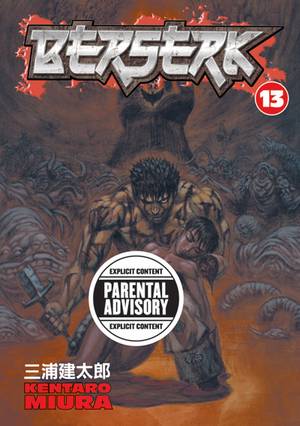
The Great Nocturnal Festival
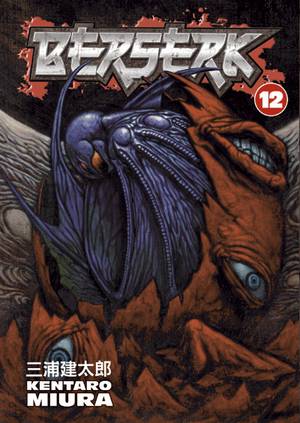
Monday, November 23, 2009
Repitition of Themes and Soldiers Mantras
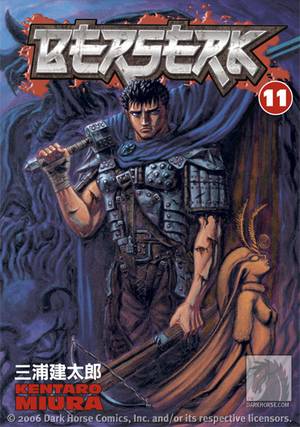
An Expanding Road Leads To More Places
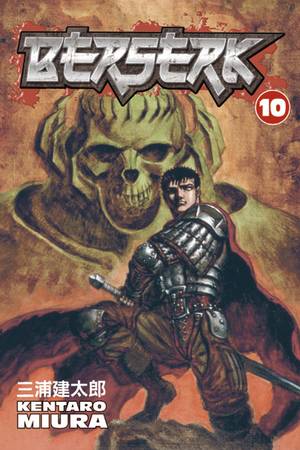
Keep Them Guessing
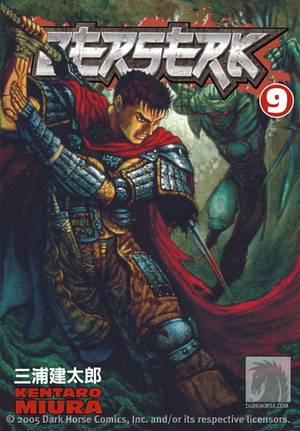
Sunday, November 22, 2009
Characters And the Court
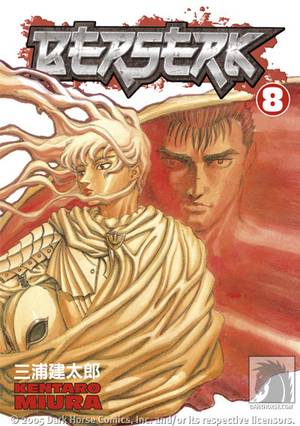
The Glory of Minions
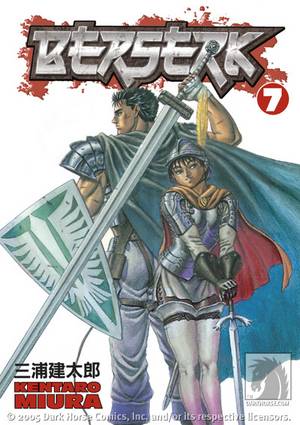
Party Focus In The Big Picture
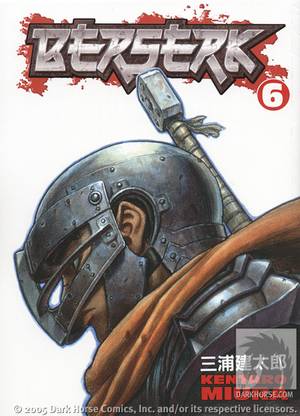
By keeping the focus on the party as opposed to the world, you allow the party to influence what happens in the world as it effecs the party. Perhaps in a city siege the party is seperated from the main body of soldiers but in doing so, gets access to information that is vitally needed. Perhaps they are able to use old sewer systems to launch an assassination attack at the commander of the enemy forces. Perhaps in the forest the party discovers a group of stones that when activated, allows the party to cover vast distances quickly, allowing them to act as a vanguard for an army invasion.
Friday, November 20, 2009
Swords, Sorcery, and Supernatural Horror: Nosferatu Zodd
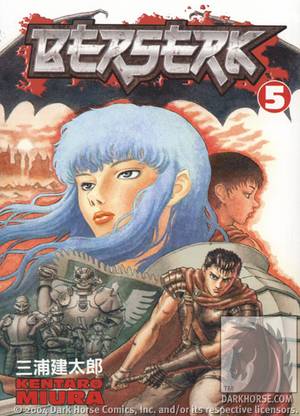
GMNPC: Thy Name is Griffith
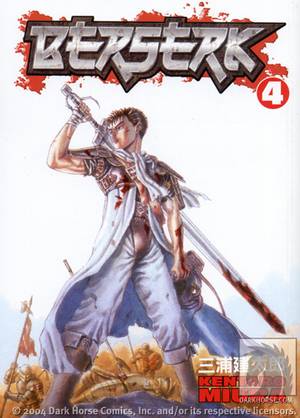
Tuesday, November 17, 2009
Letting the Lyrics Work For You Via Alice in Chains: Last of My Kind
I've been listening to Alice in Chain's newest release, Black Gives Way to Blue, and the first three tracks, All Secrets Known, Check My Brian, and Last of My Kind are very solid tunes. The lyrics in that last one especially seem appropriate for a fantasy or science fiction based game.
A Wolf Alone Upon the Hillside
I live on what they throw away
I go to sleep behind the eight ball
I live to fight one more day
One of the most overused origin stories for heroes is that of the loner but perhaps just as used is the humble origin. In this case, we get both. Sounds like the background for many an assassin who dwells in the lower reaches of society.
Take What I Wanted, and
Break all the lies and
Defeat the f****ing liars...
Smash all the temples, and
Crawl through the rubble, and
Cry to the Fallen
Adventurers are notorious for doing things their own way. They are willing to cut through the lies that civilized men tell one another in order to keep the peace. I recall a Conan bit where Conan doesn't turn in one of his friends and just goes wild in the court room. Something about keeping a civil mouth of well, let swords handle it.
Players are quite adept at taking their own abilities and driving those who stand against them to the wall.
The name of the song itself though, also brings to mind something a lot of players want for their characters. To be the last of their kind. No, not necessarily the last elf or the last of a particular race, although as Superman has proven, that does have it's own affinity. Rather, they want to be the masters of something that no one else is. This could involve having a powerful magic item, a set of abilities that no one else has access to, special background or titles. Something that makes them stand out from the other characters including characters the player has run in the past.
Keep the players in the spotlight and let them be the last of their kind.
Sunday, November 15, 2009
How Important Communication in Your Campaign?
In many standard fantasy settings, for those with the wealth to afford it, magic is the ultimate utility in terms of communication. It can be used to send messages or with the right power, people straight to where they need to go.
Communication has the same limitations as many other elements that involve travel. In most fantasy settings, it's a fairly dangerous world once you step outside the safety of a town or city. Once in the wilderness, anything goes.
In Kate Elliot's series, Crown of Stars, the King had Eagles, specialized messengers. In various Thor comics from Marvel, the old Odin often relied on his ravens to spy on others and rely what they had seen to him.
Thinking about how to use communication can add some elements to the campaign that you may not have thought of.
Letters, being perhaps the most mundane, would probably be the most common, especially if attached to messenger birds as was common with homing pigeions. The problem with that though it is takes a lot of birds to hopefully get one message though. In addition, does the right message get through. Piegions aren't very tough and can easily be replaced.
But what it a message does get through? How long can it be? How much cramped writing can be put onto a small piece of parchement to be pinned to a bird's leg? Not much.
Letters will not contain the hand gestures, the tone, posture, or other signs that another form of communication may. Indeed, letters can provide little more than words that the user at the other end has to assemble into something of meaning.
For other messages, kingdoms might develop a series of towers, each one using mirrors, fires or other markers bright enough that another tower can see it. The problem with such a signal though is that it's visible to everyone. Something to be used only in the most dire of circumstances, such as when say, calling on another kingdom for aid.
In some campaigns, the kingdoms of old had various gates or pockets into another dimension where travel was much quicker. In the 'modern' fantasy setting, often these gates are greatly reduced in number. They may not function as they once did. There may be problems using them. Those other dimensions may now be haunted by dire monsters. The other dimensions may not be suitible for life as the characters know it. The other dimensions may have bleed over into still other dimensions and there is a chance that those who go into such places may never come out again.
When thinking of how news gets from one part of the kingdom to another, think about both the mundane and magical methods needed to get that news out.
Friday, November 13, 2009
The Limits of Temptation in Berserk
 So over here at Dark Horse Comics, we have a summary of Berserk volume 3, cover, and some sample pages. Below are some ideas that you might think of when doing Non-Player Character design.
So over here at Dark Horse Comics, we have a summary of Berserk volume 3, cover, and some sample pages. Below are some ideas that you might think of when doing Non-Player Character design.One of the reasons I keep coming back to non-player character design is that it's one of the key elements you can add to a campaign. I was going to say one of the few things, but any Game Master worth his salt has come up with new traps, monsters, magic items, and other bits.
But with Non-Player Characters, as a Game Master, you've got a chance to showcase how the world works for people other than the characters. You've got a chance to put some characters on display in a non-dungeon setting.
Last volume, the audience was told that the count changed seven years ago. His daughter provides a story of how heretics killed the count's wife and this hardened the count's heart and how his daughter is his only prized possession.
In the fight with Guts, the count becomes so injured that on the point of death, he summons entities of such power that they are essentially gods or demon gods or well, things so powerful that stats are meaningless. In this time of need, they agree to raise the count to his full power, to restore him and kill the count's foe... in exchange for the life of his daughter.
During this time, the reader learns that no, it was not heretics that killed the count's wife, rather, the count's wife was a member of a cult of heretics and engaged in an orgy to depraved deities. Seeing this drove the count into a rage but he couldn't kill his wife. Rather, he offered her as a sacrifice to the demon lords, the Godhand. They offer the count the same exchange here, but this time, he fails and dies.
Having lines that the NPC's won't cross no matter how tempting or how useful or how much they would gain by doing so, shows the players that they're not the only ones who have rules in place. That there are ways they can fight against those who pester them that don't necessarily involve putting everything to the sword.
Not a perfect example in this volume, but here, Guts uses the daughter as a shield. The count won't attack while she's in danger. In other volumes, incidents happen that may not be 'heroic', but in Dungeons and Dragons 4th edition, with it's unaligned alignment being a prime choice, it may beat having to kill dozens in order to acheive a goal.
Thursday, November 12, 2009
Berserk #2: Not Patrons But...

Sunday, November 8, 2009
Tortured Heroes with Berserk and the Goon!
However, there are a wide variety of resources to draw material from.
At the blog site, B/X Blackrazor, he's mentioning 'tortured heroes'. His definition is a little tight for some, but for the characters I'm going to talk about, it probably fits.
First, let's look at Guts.
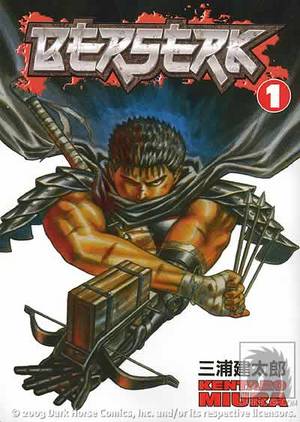
He could probably fit most people's definitions. From the cover alone, you may not be able to tell, but his left arm is mostly mechanical. An unfeeling piece of metal. His body is riddle with scars. His right eye is gone. In addition, he has a brand on his neck that reacts to the presence of the supernatural.
In and of itself, these elements make for strong descriptor elements. They make him a memorable character based on description. In Hero, he'd have distinctive features as a disadvantage.
However, his scars and wounds are not the only distinctive things about him. His sword is huge. One of the dreaded blades like those found in Final Fantasy VII used by Cloud and his ranged weapon is a reapeating cross bow mounted on his mechanical arm. These are also distinctive weapons. They are useful in terms of making a character stand out.
In the first volume, and beware, the spoilers are going to start hot and heavy here. If you're interested in the idea of Berserk, check out Dark Horse Comics here for a preview and more descriptions.
The series starts off with Guts in the act of lovemaking on the side of the road. Sounds a little weird right? But then it gets stranger as the woman turns into a massive demon only to fall prey to Guts who apparently knew what she was all along.
So for Game Masters out there, remember, things aren't always what they seem. Most often shapechangers fall into the demon, magic user, or creature with innate ability to transform into something else. In this case, the apostales as their called, have a normal guise and a demonic guise where their full strength in in power.
Guts encounters some hard times and eventually gets to the goal of fighting what he's there to do so. But in the process, many of the townfolk are killed. Guts notes that you can't worry about the ants beneath your feet or you'll never be able to walk.
I've mentioned before that sometimes characters are so powerful that their mere presence can cause issues. A standard encounter for a character of Guts level is indeed enough to decimate the town.
Guts has some similiar elements though to another character that also comes out of the Dark Horse stable. This time however, instead of manga, we get comics collected into Graphic Novels featuring the man known as the Goon! For those interested in learning more about this character, check out Dark Horse here!
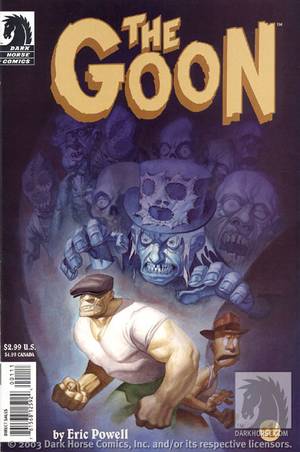 Perhaps not obvious from the cover, the Goon also suffers physical injuries. What's more, he's a man with a 'hard' personality whose concerns are generally only for his corner of the world and his friends. Or are they? Perhaps the tortured hero with a conscious would be a better descriptor for the Goon.
Perhaps not obvious from the cover, the Goon also suffers physical injuries. What's more, he's a man with a 'hard' personality whose concerns are generally only for his corner of the world and his friends. Or are they? Perhaps the tortured hero with a conscious would be a better descriptor for the Goon.
The Goon lives in a world where zombies, pulp super science and other elements walk hand in hand with pulp noir action and is broad enough to have a crossover not only with Hellboy, but with the old boys from Metallocalypse.
In looking at tortured characters, figure out what makes them tortured. If it's just a single element that they could easily solve, why are they still tortured after that? If it's just a case of angst, move on!
Saturday, November 7, 2009
Lessons From Yet Another Fantasy Gamer Comic
In short, it's essentially a Dungeons and Dragons based comic with a little more of an 'evil' slant to it. Characters have motivations, go on quests, meet strange and interesting cultures, etc...
Over here and over here are examples of what I would call non-combat related rewards.
In the former, it showcases the value of family without invoking drama. It presents events over the course of a visit, over a holiday.
In the latter, it brings to the conclusion a long running bit on the halfling Clover. It's something that doesn't necessarily make her more powerful in terms of fighting ability, but it does present a new level of potential wealth.
The real question the game master should ask after looking at something like the strips above, is what motivates the players outside of wealth?
Political position: The character is a member of a guild and seeks advancement in it or beyond it.
Love: The character has relatives he has not seen in a long time.
Exploration: Not all ruins are haunted and not all unmapped territories need to have death at every corner.
Hobbies: What things can the character be looking to expand on when not actually preparing for battle?
Bring opportunities for the characters to have encounters outside the dungeon that can't be solved with steel and fire and see how the players react.
Wednesday, November 4, 2009
An Ending to Crown of Stars by Kate Elliott
While not a challenging tale in and of itself, it does illustrate that people have options. In a fantasy campaign, it's important to keep those options in mind when designing encounters not because you want to put a clamp on them, but because the more aware you are of what the characters can do and how your players think, the more likely you'll have results ready for anything they try to do. You don't do this to pin them down to a predetermined course, but rather, so that you can keep the game itself moving. When the game slows down because the game master wasn't prepared for something the players didn, everyone loses.
Anyway, onto some thoughts on Crown of Stars.
"I am puzzled," said Rosvita, "by what he meant by men with animal faces." (p.19)
Description without explanation is a mysterious thing. A large humanoid can be any number of things. In the case above, the men with animal faces are actually primitive elves who wear animal masks. Coming to the people third source however, it may craft images of a far different manner. Think about how the players learn about the campaign setting. If they're willing to play with the background details you've given them, while they won't experience that first rush of discovery at an orc as they may have once, it will prevent things from being same old same old.
"No one would ever know the whole, now that Anne was dead, and even Anne could not have comprehended everything because in many ways she had also been their pawn, their creation." (p.163)
Often I hear bitter complains about the evils of railroading.
Let me tell you something.
If you're doing a good job running things, the players not only won't know if and when they've been railroaded, they'll enjoy the story as it moves along like a thing of destiny. This isn't saying put up massive impenetrable forests if they move off the road or to have a quest spell laid on them to get a certain item but if the events require a certain way to do things, run it to the players fun as much as possible and they'll go with it, often not even knowing it was a rail road.
"Or she could stay in the Eagles, like Hathui, always and forever, because she loved being an Eagle even after all this, even after everything. Here she felt at home, standing watch in the middle of the wilderness with enemies all around and a few stout friends at her back, all in service to the regnant. Here she felt a measure of peace, perched on the wall with the damp air and the spattering of rain and the night wind breathing on her. Not knowing what the next day would bring and aching with the misery of wondering what has happened to the ones she loves." (p.184)
Why do the characters do what they do? Sometimes it could be easier to show them through an NPC. A ranger or other wilderness styled individual who still owes alliegance to those in power can be a showcase of how one can be rugged and on the outside, yet still serving a greater cause. The old post over here on Grongnardia offers some interesting thoughts on that.
"Laws are silent in the presence of arms, so it is said." (p.206)
In America, most of us are very fortunate in that we live in a world of laws that are not necessarily enforced by strength of arms. In most fantasy campaigns, that's not true. The further from civilization with its many layers of protection the characters are, the more likely they are to discover the value of the presence of arms.
Game Masters can work this contrast between safety and civilization and the wilds and danger. Using the times the players are in the city to highlight the various options they have to them ranging from different types of food, clothing, and even companionship and past times to what they have to make do with on the frontier and how a well forged sword may be worth someone's life.
Of course civilization, especially in a fantasy setting, doesn't necessarily only have to showcase how things stay together. But that's a topic for another post.
"Hugh had no power of his own except what he could wreak against others, a man armed wit ha sword who must stand on the field against disciplined ranks of archers and cavalry. This made him no less dangerous. A man with a sword can still kill anyone who comes within arm's reach. As long as Hugh could twist others to do his will, he could and would, harm his enemies and every innocent soul who got in his way." (p.235)
In a civilized land, it's all about who you know. After all, if you know the captain of the guard and he's one of the greatest warriors around, whose going to mess with you? The ability to confuse men and make them serve causes not necessarily their own has been showcased in many classic characters including one Gríma Wormtongue of Lord of the Rings fame.
"The ancient law?"
"Stil lheld to in Alba, I might add, and in much of Varre. The identity of a woman's children is always known, since they have sprung from her womb. That of a man's offspring-- well, no matter what anyone says, i nthe end it is always a matter of faith."
In dealing with the laws of succession in a kingdom, how does it fall? Does it fall to the eldest son? Does it fall to a woman who can prove her fertility and thus worth of carrying on the bloodline? Most fantasy settings assume the eldest male with young men going into church or other forms of service but don't be afraid to mix it up.
"We hear rumors of reavers with poisoned arrows harrying travelers along the roads leading east into Fesse." (p.267)
I've mentioned it before but always keep the rumor mill flying. Things should always be happening, even if the player's don't follow up on them. The larger the setting feels to the players, the larger it effectively is.
On the other hand, "reavers with poisoned arrows" is just a damn fine encounter. How dangerous is the poison? Where is the supply coming from? Can the supply be cut off? Is there a common cure? Is there a anti-toxin that adventurers can take before hand to minimize the threat? Foes who have methods of dealing great death and destruction always get a player's respect right out of the box and make them think more than mere numbers.
"Henry should have killed Sabella after the first revolt!" said Liutgard. "He was too lenient!"
"Wendish do not murder their kinfolk, not even to the pursuit of power," said Sanglant mildly. "We are not Salians, Liutgard. Thank God." (p.350)
I've mentioned it before, but trying to prevent a group of players from being men men reavers who kill all they encounter can be a difficult thing. Most fantasy engines are designed to reward the defeat of the enemy and keeping an enemy alive is often more problem than its worth.
But what about family? What about family that may be redeemed? What about family that's very close to the character, a direct relative as opposed to a distant one? Is it still loot the dungeon and let the deities know their own? Kinslayers can have a nasty reputation that could easily mar the reputation for the whole party if they are known associates of such an individual.
"Liutgard smiled tinly. "There is no traitor's gate, Cousin."
So named in the book as a crawling spaced where a small group of men could creep in to surprise the defenders of a castle. Sound like a job for adventurers or what?
"It was Hugh of Austra who murdered her, when she was sleeping and helpless, and for no better reason than that he wanted no apprentice of Meriam's to challenge his knowledge of the magical arts." (p. 379)
When looking for motivation for the bad guys, one simple thing may be that they like their toys so much they don't want anyone they don't directly control to have them. Liches and other ancient undead can horde power by killing those who may know their arts or similiar arts. Great warriors may hunt down those who know their style in order to maximize the effectiveness of their own murderous arts. Always look at what the players can do and think who doesn't want them to have that ability. In some instances, it may be a whole race. For example, what if the elves so regret teaching humans the magic arts that they send out highly trained assassins to kill all human mages?
"Ai, God," whispered Alain... "He is a good man. Can you not fly after him and bring him back?"
"Why should I?"
"Because Heribert loved him." (p.455)
A good villain may not be well rounded but it should have something to it that the players can understand and that the players can work against them. In the above instance, Sanglant is essentially unkillable by man or woman but this entity Alain speaks with is essentially a other planar entity that rips his soul out, leaving his body souless. The thing does this looking for Heribert, whom the entity loves above all others thinking Sanglant is hiding him. By appealing to the thing's love of Heribert and that motivation of doing what the one he loved would want down, Alain manages a victory without combat. In D&D and Burning Wheel, among other games, skill checks can be a great way of engaging this types of challenges without rolling for damage.
"Despite the trappings- the primitive standard, the gaudy lacework that gridled his hips and thighs, the jewels drilled into his teeth, and the bare chest painted in spirals and crosshatches- he was not what he seemed. He might appear savage, but far more dangerous current surged within." (p.477)
Appearance isn't everything. One easy way to shake things up is to pit the characters against an enemy who seems to be one type of thing but is actually far beyond those humble origins and in fact holds a far different role than the players may assume.
"it was the king of grunt made by a person who has just realized that, in fact, he will have to haul those damned logs all the way back up the hill and that there is no use complaining because the master is harsh." (p.484)
If you have a gaming group and they're always complaining about the way the game is going, it might be time to find a new gaming group. There is a massive difference between grumping in character because things aren't working the way you'd like and grumping that the game sucks, that the magic item ratio is too low, that the game master is against you, etc... Engage the characters when possible but don't waste your time as a game master on people who are only there to complain.
There are numerous other parts of a Crown of Stars I could quote, but instead I'll do a dreaded summary.
The Crown of Stars itself. This item is found late in the series, the old artifact of the old emperor. At the end, instead of using it as a symbol of old power, they return it to the original statue where the old king is buried and forge ahead on new paths of unity.
The ending. I'll admit, it didn't do it for me. It took a generational look at a character I just didn't care about. However, it also had a small "what happened to" section on a character I did care about and that part redeemed the ending. When ending a campaign, it might be better to do a fade out shot of the characters, especially if they're reached the upper tiers of the campaign, as opposed to having the players hear some wish washy NPC they never liked speak of the deeds of their children.
The length. Try to maintain a sense of the campaign for the long run. A series like Crown of Stars runs thousands of pages and can be a beast to devour all at once. Don't be afraid to take side journeys on that path as long as you return to the road.
Last but not least, make sure that you as the Game Master, are enjoying the road you are on. There is no point in making the group happy if you're misearable because sooner or latter that misery will make itself manifest!




